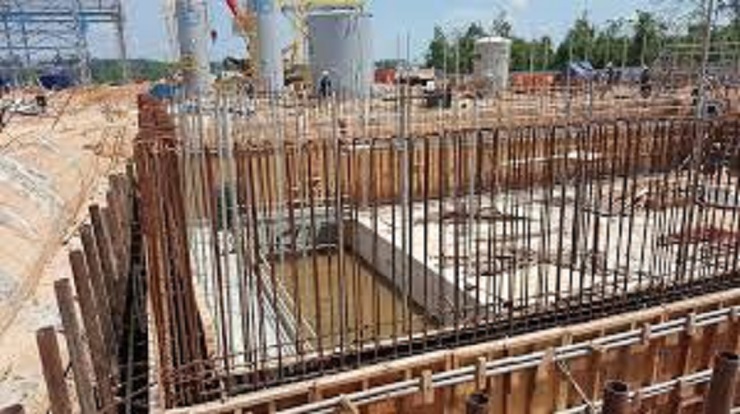Every construction project begins with a solid foundation, both figuratively and literally. Whether you’re constructing a residential building, a commercial space, or any other structure, the success of your project hinges on proper planning, high-quality materials, and the use of reliable professionals. Building a strong base ensures safety, durability, and cost-efficiency, minimizing the risk of delays or future complications.
This article provides essential tips for establishing a robust foundation for your construction project and emphasizes the importance of partnerships with trusted service providers, such as a reputable scaffolding company in Wandsworth, for achieving the best results.
1. Start with Detailed Planning
The cornerstone of any successful construction project is meticulous planning. This step involves determining your project’s scope, budget, and timeline and ensuring all necessary approvals and permits are obtained. Here’s how you can effectively plan:
- Set Clear Objectives: Define what you aim to achieve, including the purpose of the building, the size, and the layout. Clear objectives guide every subsequent decision.
- Assess the Site: Conduct a thorough site analysis to identify any challenges such as soil instability, drainage issues, or access restrictions. An experienced surveyor can provide detailed insights.
- Create a Realistic Budget: Account for all expenses, including materials, labor, permits, and unexpected costs. A well-planned budget helps prevent financial overruns.
2. Prioritize Soil Testing and Preparation
Soil testing is a critical early step in construction. It determines whether the ground can support the intended structure and helps identify any additional measures needed to stabilize the foundation.
- Geotechnical Surveys: These surveys analyze soil composition, moisture levels, and load-bearing capacity. Based on the results, you can decide whether reinforcements or specialized materials are required.
- Site Preparation: Clear the land of debris, vegetation, and any obstacles. Level the ground to ensure a stable and even surface for foundation work.
3. Choose the Right Materials
The strength of your construction project heavily depends on the quality of materials used. From the concrete mix to the steel reinforcements, each element contributes to the overall durability of the structure.
- High-Quality Concrete: Use the appropriate grade of concrete for your project. The mix should match the building’s weight and environmental conditions.
- Reinforcements: Steel bars or mesh are essential for reinforcing the foundation, preventing cracking, and enhancing load distribution.
- Waterproofing: Ensure the foundation materials are resistant to moisture to prevent long-term damage.
4. Focus on a Sturdy Foundation
The foundation is the bedrock of your structure, and it must be designed to distribute the building’s load evenly across the ground. Choose the foundation type based on the project’s size, soil conditions, and budget.
- Shallow Foundations: Ideal for smaller structures, these foundations include slab-on-grade or spread footings.
- Deep Foundations: For larger buildings or challenging soil conditions, deep foundations such as pile or drilled shaft foundations are necessary.
- Waterproofing and Insulation: Protect the foundation from water damage and temperature fluctuations with proper insulation and drainage systems.
5. Hire Reliable Professionals
Collaborating with experienced contractors and service providers is key to achieving quality and efficiency in your construction project. A skilled team can ensure each stage of the project is executed with precision.
- Architects and Engineers: Work with professionals who can translate your vision into a practical design and ensure structural integrity.
- Construction Workers: Hire qualified laborers trained in the latest building techniques.
- Scaffolding Services: Scaffolding is essential for safe and efficient construction, particularly for multi-story buildings. Partnering with a trusted scaffolding company in Wandsworth ensures you have sturdy and reliable support structures that meet safety standards.
6. Invest in Safety Measures
Safety is a non-negotiable aspect of any construction project. From the foundation to the final structure, ensuring worker safety and site security is crucial to avoid accidents and legal liabilities.
- Protective Gear: Provide workers with helmets, gloves, high-visibility vests, and other protective equipment.
- Secure Scaffolding: Choose scaffolding systems that are properly installed and inspected regularly. A reliable scaffolding company in Wandsworth can provide equipment that meets local safety regulations.
- Site Security: Implement measures like fencing, warning signs, and restricted access to ensure the safety of workers and the public.
7. Incorporate Sustainable Practices
Sustainability is becoming an integral part of modern construction. Adopting eco-friendly practices can reduce your project’s environmental impact and potentially lower costs.
- Energy-Efficient Materials: Use materials like insulated concrete forms or recycled steel to minimize energy consumption.
- Waste Management: Implement a plan to reduce, reuse, and recycle construction waste.
- Green Certifications: Aim for certifications like LEED (Leadership in Energy and Environmental Design) to enhance the building’s value and appeal.
8. Monitor and Manage the Project Effectively
Effective project management ensures your construction stays on schedule and within budget. Regular monitoring allows you to address issues promptly and maintain high-quality standards.
- Set Milestones: Break the project into phases with clear deadlines for each stage.
- Use Technology: Construction management software can help track progress, communicate with the team, and manage resources efficiently.
- Frequent Inspections: Conduct inspections at each stage to ensure the work meets design and safety standards.
9. Account for Weather and Environmental Factors
Weather conditions can significantly impact construction timelines and methods. Planning for potential delays and using materials suited to the environment can prevent setbacks.
- Seasonal Planning: Schedule construction activities during favorable weather conditions to minimize interruptions.
- Weather-Resistant Materials: Use materials designed to withstand local climate conditions, such as freeze-thaw cycles or high humidity.
10. Evaluate and Learn Post-Completion
Once the project is complete, conduct a thorough evaluation to assess its success and identify areas for improvement.
- Final Inspection: Ensure all work meets building codes and design specifications.
- Feedback from Stakeholders: Gather input from clients, contractors, and workers to learn from their experiences.
- Maintain Documentation: Keep records of the project for future reference, including plans, permits, and warranties.
Building a strong base for your construction project requires careful planning, the right materials, and a dedicated team of professionals. By prioritizing safety, sustainability, and quality, you can create a structure that stands the test of time. Partnering with reliable service providers, such as a dependable scaffolding company in Wandsworth, ensures you have the support needed for a successful project from start to finish. With these tips, you can lay a solid foundation for both your building and your reputation in the construction industry.

